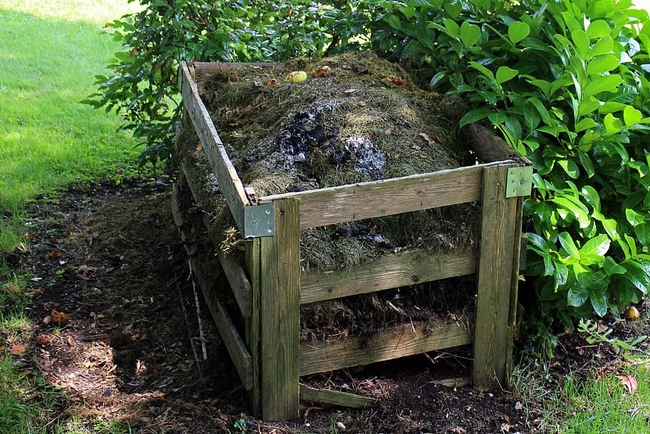
Stanislaus County Library Composting Classes
Tuesday, September 6, 2022 at 6:00 p.m. – Salida Library
Saturday, September 10, 2022 at 2:00 p.m. – Riverbank Library
Monday, September 12, 2022 at 6:00 p.m. – Ceres Library
Tuesday, September 20, 2022 at 6:00 p.m. – Oakdale Library
Monday, September 26, 2022 at 6:15 p.m. – Modesto Library
Wednesday, September 28, 2022 at 6:00 p.m. – Turlock Library
Stanislaus County Agricultural Center, Harvest Hall Composting Class
Tuesday, September 27, 2022 at 6:00 p.m. rooms D&E
Turlock Community Gardens
We taught composting at this location in spring, so this month we are offering vermicomposting, the fun and easy way to compost kitchen scraps using red wiggler worms. Children are welcome!
Saturday, September 17, 2022 at 9:00 a.m.
Patterson Library
We are offering a Fall Vegetable Gardening Class at the Patterson Library, in case you missed this class last month at other locations. Class is Wednesday, September 14, 2022 at 2:00 p.m. Composting will be taught at the Patterson Library on October 12 at 2:00 p.m.
Never miss a class, bookmark our online calendar: https://ucanr.edu/sites/stancountymg/Calendar/
- Author: Denise Godbout-Avant

With their complex social structure and “waggle dance” to inform hive members where food sources are located, honeybees are fascinating creatures.
But honeybees are not the only bees flitting about the flowers on our crops and in our gardens in search of nectar. There over 4,000 species of bees in California.
Other Bees

There are over 1,600 species of native bees in California. Unlike honeybees and Bumble bees, most are solitary in nature, and do not produce honey or wax for consumption by others. In North America, only the European honeybee and Bumble bees build hives and live in colonies.
There are 3 basic types of bee nesting:
- Ground nesting bees, which make up 70% of bees. Mining bees are an example of these.
- Stem and wood nesting bees, such as leaf cutter bees or mason bees, make up another 30% of bees.
- Colony nesting bees, such as honeybees and bumble bees make up less than 1% of all bees in North America.
Bees are in Trouble

Some ways you can help:
- Plant a garden full of flowering plants to attract bees and other important pollinators. Make sure you have something bloom during the spring, summer, and fall seasons.
- If you use a pesticide, choose one that is less toxic such as a horticultural soap or oil.
- Provide a space for nesting bees, with bee houses and bare patches of soil.
Upcoming Bee Talk

Date: Wednesday, September 14
Time: 3:15 – 4:15pm
Location: Modesto Junior College West Campus, 2201 Blue Gum Ave., Science Community Center in room 115
Denise Godbout-Avant has been a Master Gardener in Stanislaus County since 2020.

0
- Author: Anne E Schellman

Why Not Move Firewood?
By bringing wood from home, you can unknowingly spread invasive pests and diseases that can harm trees. This includes dry, aged, and seasoned wood. Once you arrive at your destination, pests can emerge from the firewood and spread to the trees and forests where you camp. Invasive and hard-to-control pests kill several million native trees every year, causing environmental and economic problems.
Did you Know?

New infestations of tree-killing insects and diseases are often found in campgrounds and parks as a result of campers moving firewood!
This trip, tell your friends and family why you aren't bringing firewood. For more information about firewood pests and resources for finding good firewood, visit the Don't Move Firewood web site. To learn about many of the invasive wood-boring pests and associated diseases and problems, visit the UC IPM web site.
First posted on August 30, 2021
Anne Schellman has been the Coordinator for the Stanislaus County Master Gardeners since 2018.
- Author: Anne Schellman

Fall Vegetable Gardening?
Even though your tomatoes are probably still going strong, now is the time to start planning for your fall vegetable garden! This month we have added the Patterson Library to our schedule. They specifically requested Water Thrifty Gardening, so next month we will offer Fall Vegetable Gardening at their location.
August Library Branch Schedule
- Monday, August 8, 2022 at 6:00 p.m. - Fall Vegetable Gardening - Ceres
- Tuesday, August 9, 2022 at 6:00 p.m. - Fall Vegetable Gardening - Salida
- Wednesday, August 10, 2022 at 2:00 p.m. - Drip Irrigation/Water Thrifty Gardening – Patterson
- Wednesday, August 10, 2022 at 6:00 p.m. - Fall Vegetable Gardening - Riverbank
- Tuesday, August 16, 2022 at 6:00 p.m. - Fall Vegetable Gardening – Oakdale
- Monday, August 22, 2022 at 6:15 p.m. - Fall Vegetable Gardening – Modesto
- Wednesday, August 24, 2022 at 6:00 p.m. - Fall Vegetable Gardening - Turlock
Class Descriptions
Fall Vegetable Gardening: Did you know you can grow vegetable plants in fall? Grow your own salad by planting leafy vegetables like lettuce, spinach, and Swiss Chard,and root vegetables like carrots, beets and radishes. These plants can be grown in the ground or in containers. Great class for beginning gardeners.
Water Thrifty Landscaping (now called Drip Irrigation): Want to make your garden more water wise? This class will teach you how to use less water, and includes detailed tips on how to install a drip irrigation system. It also includes recommendations on low-water use plants you can plant this fall once the temperature is cooler.
Ejoying our classes? Have a comment or request? Post a message below. We want to hear from you.
Contact your local library branch to find out more or if your library isn't offering our classes yet, tell them to contact us!

